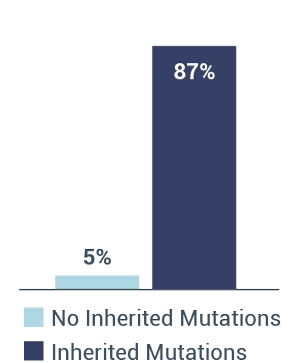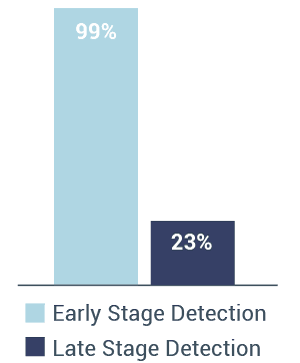Your family members can also determine their risk status and take charge of their health. Parents, siblings and children have up to a 50% chance of carrying the same mutation, putting them at increased risk.


Purchase your test online and receive a ready-to-use collection kit in the mail.
Provide a saliva sample, send back in a pre-paid envelope.
Receive your easy-to-read report in 3 to 4 weeks.
Talk to your doctor about a personalized health plan.